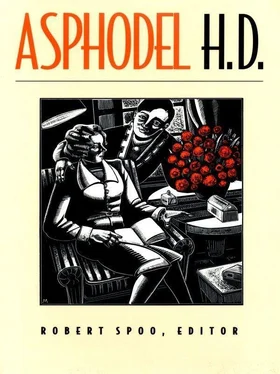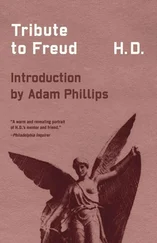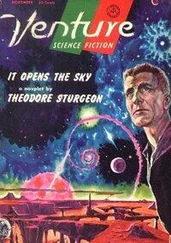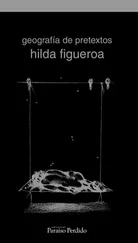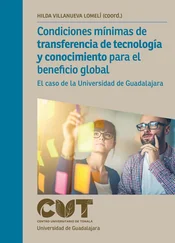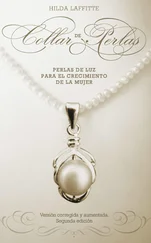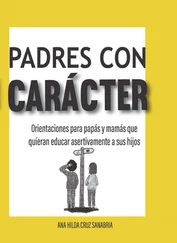“If Peter Piper picked the peck of pickled peppers then where is the peck of pickled peppers that Peter Piper picked?” “I don’t know Fayne Rabb but your silliness is unworthy of you. You are a Diadumenos, with a clown’s face. You are Hyacinth mired with horror. Hyacinth was a strong boy not a pimp. You make beauty a fool’s bladder. Bladder. Yes that thing like a balloon blown up for fools to play indecent jibes with. You are the youth of the god Hermes, but you have neither wand nor wings nor sandals. You are Hermes turning from the high ladder of Heaven solely to the underworld. Hermes led dead men across Styx. You are that river.”
“Almost thou persuadest me to be a heathen.” Who said that? Who was talking? Fayne had said something like that. It was Fayne who had first said it. Was it a joke she had picked up from George or was George saying something he had heard from Fay? “Almost thou persuadest me—” George was bending down between two incredibly tall candle sticks to turn a page. What page? All France is a book. Brrr sous la livre. A livre. A book. No it was a pound of plums in a paper bag and the bed bug (Fayne had said) climbed swifter than a horse. No, Fayne said the bed-bug walked swifter than a horse, “no, no more tea cakes, thank you,” and everywhere the bells were ringing, beating, ringing (“O no. Not yet. I hope to get to Italy later—”). Christ in Heaven, Christ in Heaven— “Almost thou persuadest me to be a—” George was saying it again. The candles sent up immaculate light toward a square ceiling whose corners were elegant Georgian circlets of fruit, beautiful like squares of Delia Robbia quince, orange and tufts of orange blossom. “Luca della Robbia.” Who was saying that? “Delia Robbia. The old fellow got the essence of the Renaissance in that thing. I myself prefer it to the hackneyed Leonardo and our eternal over-patterned Botticelli.” “O but I don’t agree with you, Sir Know-all.” “The acme of art is—” Going on and on and on and the music was coming now. Not Walter’s music. There was music and Walter’s music and this was not Walter’s. Something not to be listened to that differed from Walter’s music as the flat plaster fruits (for all their fitted-in elegance) in the lofty Georgian ceiling differed from the incarnate South, the tendrils of grape and the one tuft of blossom and the odd pine-cone. “Luca della Robbia—” It was going on. The voice that said, “Delia Robbia” was going on. One could listen to the voice. It was like these other odd voices, cultivated yet containing something else, something slightly different. The voice came from the end of the divan but Hermione, seated square before the fire on a low pouffe did not turn to face its suave producer. The voice made her think of real things suddenly though she had an odd un-nerving suspicion that it was not a real person who so spoke, “Delia Robbia and by God, the Baptistry—”
Voices. Notes. The voices were stopping out of some sort of politeness for George had turned. The two candles flared in exact symmetry and George (as Hermione twisted on the pouffe to watch him) stood in amazing radiance like some pre quattro-cento saint before an altar. Or was it Signorelli? Taddeo Gaddi. George brought to mind these perfect compositions though he himself was rough a little, a little too rough, something powerful and strong in old George though people had a way of sniggering, “decadent.” What was decadent? Not George. Facing them with his head flung back, with his excellent throat emerging from his loose collar, George tossed back a petulant lock. Began: “Sith when I met thee in thy bark of painted sandal wood.” He went on for some time in that strain and as he reached the pause at the end of what appeared to be the fiftieth line (though in all conscience it must have been about the fifth) the other protagonist began deep harp-like notes, strumming on the piano deep well ordered, well ordained notes yet futile. The producer of the notes was no amateur nor was George yet the effect was amateurish. George had hair the colour of autumn grapes, red grapes in the sun. The lights across the petulant locks of George made a picture. It was too strong, too forthright to be Italian. Late perhaps. Venetian. Tall candles and a mop of fleece. Veronese. The notes began what was presumably a prelude to the next stanza. And George discontinued.
“Odd fellow. Lowndes. Quaint fellow Lowndes.” The voice was slightly patronizing. “Always think of the first time I met him. It was at Prescott’s. They were handing around the fruit and old Hawky said ‘George, a pear or a peach’ and George said ‘neither thank you, nor a pomegranate’—” It was going on. Odd notes. The hands that swung back and forth, right and left were trained, actual musician hands. What was wrong with the whole thing? O but don’t criticize. Don’t think, Hermione. Let it go on, on, on. Voices like music. Music like voices. No art defined here, not stark outstanding terror of Beauty. Candles that make incomparable shadows not the dandelion puffs of Vérènes rooms on the Avenue de Clichy. The river. The Seine. The Thames. London. Going on and on and on. Other people drifting. Other people leaving. It was late, not late enough, too late. “Dryad.” “Yes — George?” “Dreaming, Dryad? Did you like the opus?” “Whose George?” “Mine, dearest Dryad. I thought myself quite fetching.” “Fetching yes. You seem to have fetched everybody.” “Why this petulance, Dryad?” “Jealous, I suppose.” “Why Dryad?” “I should like to be — somebody.” “What are you now Dryad?” But how tell him? What are you now Dryad? I am something like a magic lantern sheet and on it the most horrible of dreary pictures. There is a town called Liverpool and miles of black docks. Rain. And rain. And rain. That is Liverpool. Trains hoot and trains rumble and somebody says “miss hurry off here the first bell’s sounded.” Climb up and up and up long stairs, nice walls, I suppose but how horrible. This is not a boat. This is not a boat. This is to boats what other music is to Walter’s music. “Yes, Clara I think it so much more sensible to have come third on a huge boat than to risk the winter storms on one like we had. You are lucky.” Fling down your bundle of flowers, your little bundle so guarded and treasured all that disheartening journey from Victoria. Boat train. Yes boat train, not the continent. Liverpool, the Ouratania. Ouratania. Urania. Boat. Are you a boat? Hermione climbed up from the cellar of a huge white hotel that floated on the water. Below, far below a bundle of flowers spilled fragrance on the clean bunk. Sheets like cast iron but clean. Not like Rouen. Not like Havre. Clean already as if already the sterilized breath of the sterilized States had touched them. Flowers are spilling on the floor. “Don’t cry, Fayne Rabb. All the things I said to you were nothing, nothing. I never really meant them. I whipped myself up to one of my fits because you said you liked them. You’re right to stay with Clara.” “But you, darling?” “I told you long ago, I couldn’t go back. Not go back. I have to stay. I have to stay in England.”
Boats hooting. The very gulls drab and with soot-coloured feathers. Buoys bobbing like dead men in the stagnant water. Rain dripping. It’s going thank God. Thank God. “Did you say something?” A voice she recognised, a voice she knew, had always somehow, somewhere known, a voice that seemed to mean nothing but that gave her the sense of things inexpressible behind it. “O nothing much. I was thinking of some — people.” “Friends, enemies, idiots, saints or devils?” “Some of those things. Most of those things. I don’t know. Yes, all of those things.” “At once or at different times and how often?” “O, at once and at different times and sometimes all together and I think always.” “Like when is a monkey a barber and how many times would a wood-chuck chuck?” “Something like that.” “Is there an answer then?” “I don’t think so.” “But there must be. Now think hard. Anyhow tea-cakes help the brain. More tea?” “I hadn’t wanted it.” “Hadn’t. We all felt that way. But after hearing dear old Lowndes and that fragrant cedar wood, we all (I speak for the committee) feel somewhat blind-O.” “Blind-O — what?” “Famished. Starved. Hungry. I myself eat nothing for ten days and then eat.” “Is the ten days up then?” “No. It begins to-morrow.” “Why do you eat and not eat?” “Family. I can’t stand too much of ‘em. If I don’t eat it annoys ’em.” “What a brilliant idea. And if they don’t?” “O, but they do .” “Do what?” “George.”
Читать дальше
